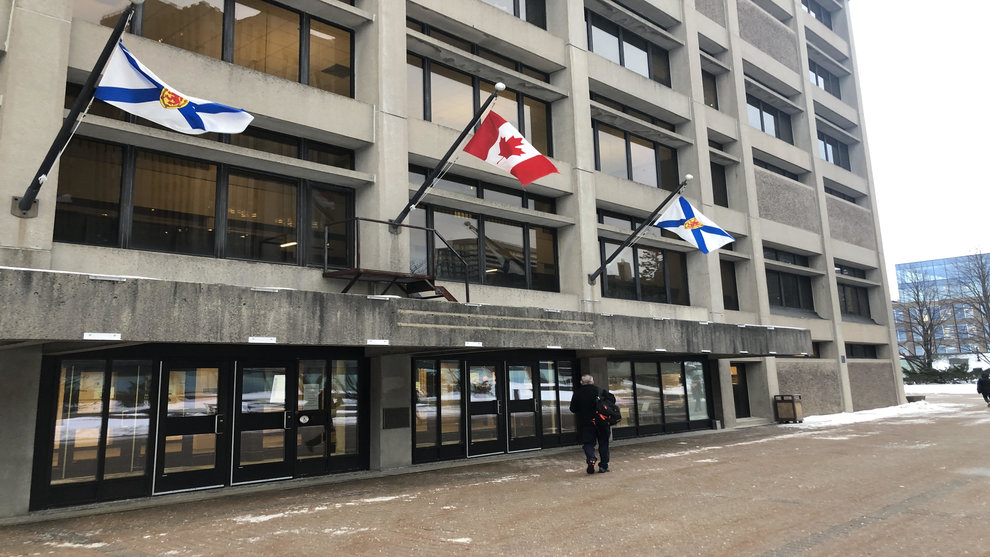William Sandeson deserves a new trial, lawyer tells appeal court
Lawyer says trial judge made a mistake in not declaring a mistrial

caption
Outside the law courts.A lawyer for convicted murderer William Sandeson is arguing his client should have a new trial, largely because the defence’s private investigator had tipped off police.
Ian R. Smith laid out his arguments in the Nova Scotia Court of Appeal on Monday.
Sandeson was convicted of first-degree murder of Taylor Samson in 2017. Samson, a student at Dalhousie University, went missing on Aug. 15, 2015. His body has not been found.
Sandeson’s eight-week jury trial began in 2017. He was found guilty of first-degree murder and sentenced to life in prison with no eligibility for parole for 25 years.
Smith argued the trial was unfair as the defence found out mid-way through that their private investigator, Bruce Webb, had gone to police. Webb discovered Sandeson’s neighbours, Justin Blades and Pookiel McCabe, had lied to the police, out of fear, when they gave their initial statements.
Webb learned that Blades and McCabe heard a gunshot and saw Samson on the kitchen table in Sandeson’s apartment with lots of blood. Webb worked first with Blades to give another statement to the police. He then helped McCabe do the same.
Webb was privy to the defence’s strategy meetings and other information. When the defence found out about Webb’s actions, they filed for a mistrial, but the trial judge, Nova Scotia Supreme Court Justice Josh Arnold, denied it. He instead allowed them to adjourn, recall witnesses and gave them time to cross-examine evidence.
Jennifer MacLellan, the lawyer representing the Crown, defended Arnold’s decision in court Monday. She said the defence could have requested more time from the judge or requested a different action if they had needed it.
Smith argued that the defence’s strategy was shot as soon as they knew about Webb. He said the questions they could ask going forward were limited due to the new information.
He also said the defence wasn’t given any notes from the Crown or the police on their conversations with Webb after requesting them three times.
“Why is it that there are no notes to disclose?” said Smith in the courtroom.
The main issue with Webb sharing information with the police is whether or not litigation privilege was broken. Litigation privilege protects documents and knowledge between the lawyer, their client or a third party.
Smith argued three other grounds for appeal:
- The police didn’t have a valid reason for searching Sandeson’s apartment without a warrant,
- When interrogating Sandeson, the police didn’t inform him right away when they started to view him as a murder suspect,
- There is insufficient evidence to prove it was premeditated murder.
The case will be back in court on Tuesday for the Crown to resume its submission.
Justice David Farrar, Justice Jamie Saunders and Justice J. Edward Scanlan are hearing this appeal.
About the author
Kristina Pappas
Kristina Pappas is a journalism student. She's from western Canada and is smitten with the east coast's charm. You can find her at a beach, exploring...
